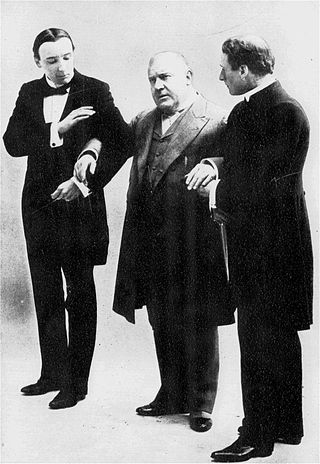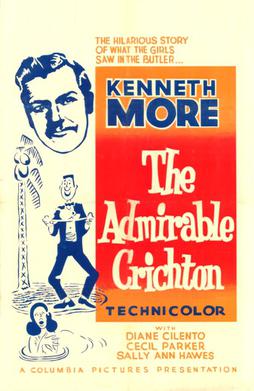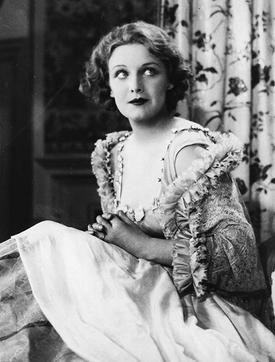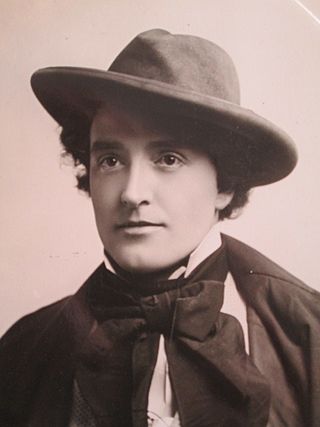Related Research Articles

The Admirable Crichton is a comic stage play written in 1902 by J. M. Barrie.

Male and Female is a 1919 American silent adventure/drama film directed by Cecil B. DeMille and starring Gloria Swanson and Thomas Meighan. Its main themes are gender relations and social class. The film is based on the 1902 J. M. Barrie play The Admirable Crichton.

The Admirable Crichton is a 1957 British south seas adventure comedy romance film directed by Lewis Gilbert and starring Kenneth More, Diane Cilento, Cecil Parker and Sally Ann Howes. The film was based on J. M. Barrie's 1902 stage comedy of the same name. It was released in the United States as Paradise Lagoon.
The Fruitful Vine is a 1921 British silent drama film directed by Maurice Elvey and starring Basil Rathbone, Valia and Irene Rooke. From the silent era, probably the most notable thing about the film was an early appearance of British actor Rathbone, who was later to become famous for his portrayal of Sherlock Holmes. It is an adaptation of the 1911 novel The Fruitful Vine by Robert Hichens.

The School for Scandal is a 1930 British historical comedy film directed by Thorold Dickinson and Maurice Elvey and starring Basil Gill, Madeleine Carroll and Ian Fleming. It is the first sound film adaptation of Richard Brinsley Sheridan's play The School for Scandal. It is also the only feature-length film shot using the unsuccessful Raycol colour process, and marked the screen debut of Sally Gray. The film was shot at the Elstree Studios of British International Pictures with sets designed by the art director Lawrence P. Williams. It ended up being released as a second feature and is classified as a quota quickie.

Basil Gill was a British stage actor and film actor. His stage career included many roles in plays of Shakespeare.
A South Sea Bubble is a 1928 British silent comedy adventure film directed by T. Hayes Hunter and starring Ivor Novello, Benita Hume and Alma Taylor. The screenplay concerns a group of adventurers who head to the Pacific Ocean to hunt for buried treasure. It was made at Islington Studios.
Mrs. Dane's Defence is a 1933 British drama film directed by A. V. Bramble and starring Joan Barry, Basil Gill and Francis James. It was an adaptation of the 1900 play Mrs Dane's Defence by Henry Arthur Jones. The play had previously been adapted into an American silent film.
Mary Dibley was a British film actress. She was married to the actor Gerald Ames.
The Autumn of Pride is a 1921 British silent romance film directed by W. P. Kellino and starring Nora Swinburne, David Hawthorne and Mary Dibley. It was an adaptation of a novel by E. Newton Bungay.
London Pride is a 1920 British silent comedy film, directed by Harold M. Shaw, and starring Edna Flugrath, Fred Groves and O. B. Clarence. It was based on a play by Arthur Lyons and Gladys Unger.
The Derby Winner is a 1915 British silent sports drama film directed by Harold M. Shaw and starring Edna Flugrath, Gerald Ames and Mary Dibley. It is an adaptation of an 1895 play The Derby Winner by Henry Hamilton, Augustus Harris and Cecil Raleigh.
The Woman of His Dream is a 1921 British silent drama film directed by Harold M. Shaw and starring Mary Dibley, Alec Fraser and Sydney Seaward. It was adapted from a short story by Ethel M. Dell.
A Fortune at Stake is a 1918 British silent drama film directed by Walter West and starring Violet Hopson, Gerald Ames and Edward O'Neill. It was based on a novel by Nat Gould.
James Lindsay was a British actor.
Red Pottage is a 1918 British silent drama film directed by Meyrick Milton and starring C. Aubrey Smith, Mary Dibley and Gerald Ames. It is an adaptation of the 1899 novel Red Pottage by Mary Cholmondeley.
Missing the Tide is a 1918 British silent drama film directed by Walter West and starring Violet Hopson, Basil Gill and Ivy Close. The film is based on a novel by Alfred Turner. The screenplay concerns a woman who leaves her cruel husband for another man, only to discover that he has recently got married.
The Silver Greyhound is a 1919 British silent film directed by Bannister Merwin and starring James Knight, Marjorie Villis and Mary Dibley.
The Admirable Crichton is a 1950 British TV adaptation of the 1902 play The Admirable Crichton by J. M. Barrie. It was directed and produced by Royston Morley. It stars Raymond Huntley.

Clarence Blakiston was a British film and stage actor, comedian and singer who during his career across five decades played the title role in the Sherlock Holmes parody Sheerluck Jones, or Why D’Gillette Him Off at Terry's Theatre (1901–02) which ran for 138 performances and who appeared in the original production of The Admirable Crichton at the Duke of York's Theatre in 1902.
References
- ↑ "BFI | Film & TV Database | The ADMIRABLE CRICHTON (1918)". Ftvdb.bfi.org.uk. 16 April 2009. Archived from the original on 13 February 2009. Retrieved 17 February 2014.